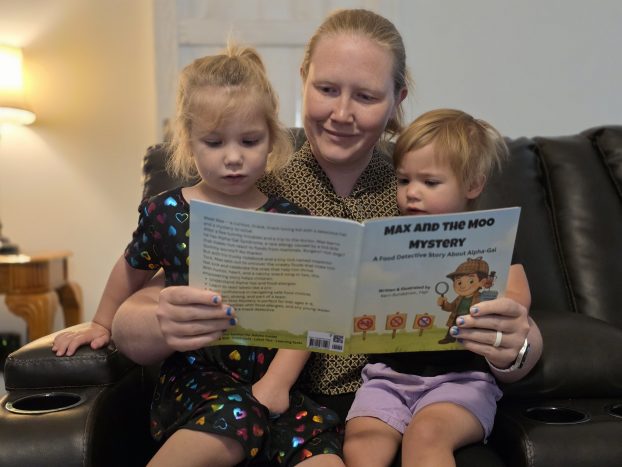Citizens should make own decisions on vaccinations
Published 6:00 am Wednesday, August 18, 2021
|
Getting your Trinity Audio player ready...
|
On Monday, Aug. 9, the General Assembly approved a compromise bill to spend about $3.5 billion in federal relief.
The Senate and House had passed slightly different versions of the budget bill to spend funds for the state through the American Rescue Plan Act, which Congress passed in March.
The Senate made several amendments, while the House approved the bill as originally proposed by Gov. Ralph Northam and Democratic leaders. Republicans were only given two minutes in the house to discuss amendments, which were each shut down from the majority. Multiple proposed amendments addressed law enforcement pay, citing concerns about officer retention and crime.
Trending
A conference committee of 14 House and Senate members negotiated the deal. House and Senate conferees came to an agreement on HB 7001 late Friday, Aug. 6, working through the House and Senate versions of the legislation.
The compromise bill doubles the $2.5 million set aside for the attorney general’s office to increase community violence prevention programs, extending programs started in Norfolk and Richmond.
The compromise pared the deputies, correctional and regional jail officers’ bonuses down to $3,000, in addition to Northam’s state police bonus. It also includes language saying Northam will create a work group that will study compensation for deputies and jail officers and deliver recommendations by Oct. 15.
The other $2.5 million will go to the Department of Criminal Justice Services to provide grants to groups doing violence prevention, citing examples of programs in Los Angeles and Boston. House Republicans had wanted to create similar grant funds, citing Boston’s Project Ceasefire.
It also requires the Department of Motor Vehicles to plan for restarting walk-in service. The DMV now has 30 days to submit a plan and then a subsequent 30 days to implement it.
The compromise bill also restores temporary rules for college athletes who want to make money off their name, image and likeness that the Senate took out last week. The U.S. Supreme Court decided this summer that the NCAA can’t stop schools from providing some benefits to players, and this year, several states have passed laws to allow student athletes to license their image.
Trending
Many spending items had bipartisan support. House and Senate Republicans proposed putting more of the reserve toward broadband and the state’s unemployment insurance fund, which ran out of money last year, potentially triggering an automatic payroll tax hike if not funded.
It will use nearly $222 million of additional funds the state received under the law for capital projects to accelerate expansion of high-speed internet to underserved communities across Virginia.
It also includes over $935 million to ramp up the state’s unemployment insurance system.
The legislature voted to spend $354 million of the federal funds in the next two-year budget on priorities such as compensation for direct care staff at state behavioral health institutions and law enforcement officers, but that money is subject to action by the next General Assembly and governor in the 60-day session that will begin Jan. 12.
The House adopted the compromise in a 78-20 vote, and the Senate gave its final agreement in a 23-16 vote.
Imperfect as it is, this bill is better than nothing. It takes some steps to mitigate tax increases on our small businesses, and makes needed changes to the Virginia Overtime Act, fixing some Democratic mistakes from last session.
It gives some of our law enforcement professionals a well-deserved bonus, even though it doesn’t do it for all of them. Democrats adopted this bill in an inexcusable way, but I’m not going to let the perfect be the enemy of the good.
The governor’s announcement last Thursday was twofold; a vaccine or testing requirement for state Executive Branch employees, and a mask mandate for K-12 schools.
For state employees, the order is not a complete vaccine mandate. Those who do not wish to be vaccinated will be required to be tested once per week. While that is onerous, it does give those who do not wish to be vaccinated an alternative.
The “proof” of vaccination will be handled not unlike the way Democrats have handled voter ID. One may simply sign an attestation that they are vaccinated to satisfy the mandate.
Regarding schools, the governor insists he has not issued a masking mandate for K-12 schools. Rather, new CDC guidance in conjunction with the passage of SB 1303, he argues, creates the mask mandate
Others, including the bill’s patron, argue that the governor is intentionally misreading the bill to avoid taking unpopular action. The most important thing in this conversation is for everyone to listen to each other and respect that there are differing viewpoints that can be valid at the same time.
Vaccines are safe and effective. More than 96% of cases diagnosed in Virginia in recent days have been in unvaccinated people. It’s still understandable that some people have reservations.
Some people may have had a bad reaction to vaccines in the past. Others may not trust a vaccine that hasn’t gone through the full FDA clearance process yet. Some may object for religious reasons. Regardless, this is a personal decision that individuals should make on their own, balancing the small risks of vaccination versus the risks of COVID.
Vaccines are freely available to virtually everyone now. If someone wishes to be vaccinated, they can do so. If they don’t, then that’s their choice as well.
If someone is concerned about catching COVID from the unvaccinated, they can get a vaccine that will give them very strong protection against the virus and serious illness. If someone is not concerned about COVID, they can take other precautions and not be vaccinated.
People are free to weigh the risks on both sides and come to their own conclusions. The solution here is obvious: make masking optional and vaccinate as many people as possible.
If you are looking to get vaccinated, please visit https://vaccinate.virginia. gov/.
Next week, VEC will begin officially notifying customers that all federal programs are ending September 4. Furthermore, customers on federal benefits are not eligible to return to the state unemployment program until they have successfully returned to work and met minimum requirements prior to another qualifying event, such as a layoff. The VEC and the Virginia Career Works Centers continue to support claimants in their return-to-work efforts. Below is a link to our job fair webpage and some examples of upcoming events around the commonwealth. https://www.vec.virginia.gov/ find-a-job/job-fair.
DEL. C. MATTHEW FARISS represents Buckingham in the Virginia House of Delegates. His email address is DelMFariss@ house.virginia.gov.





